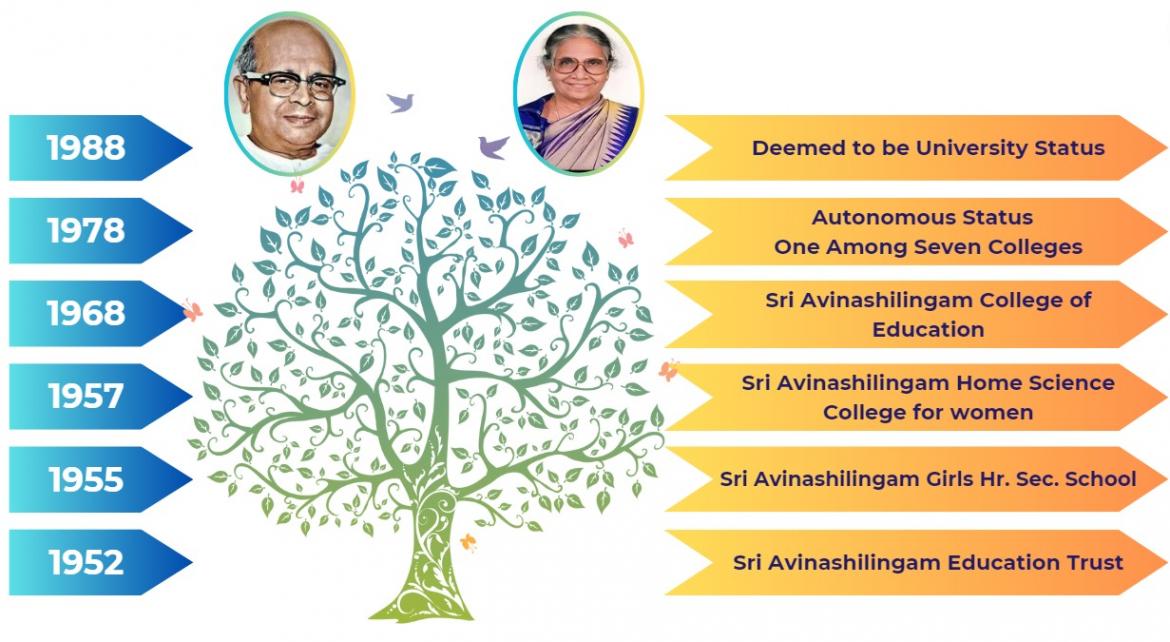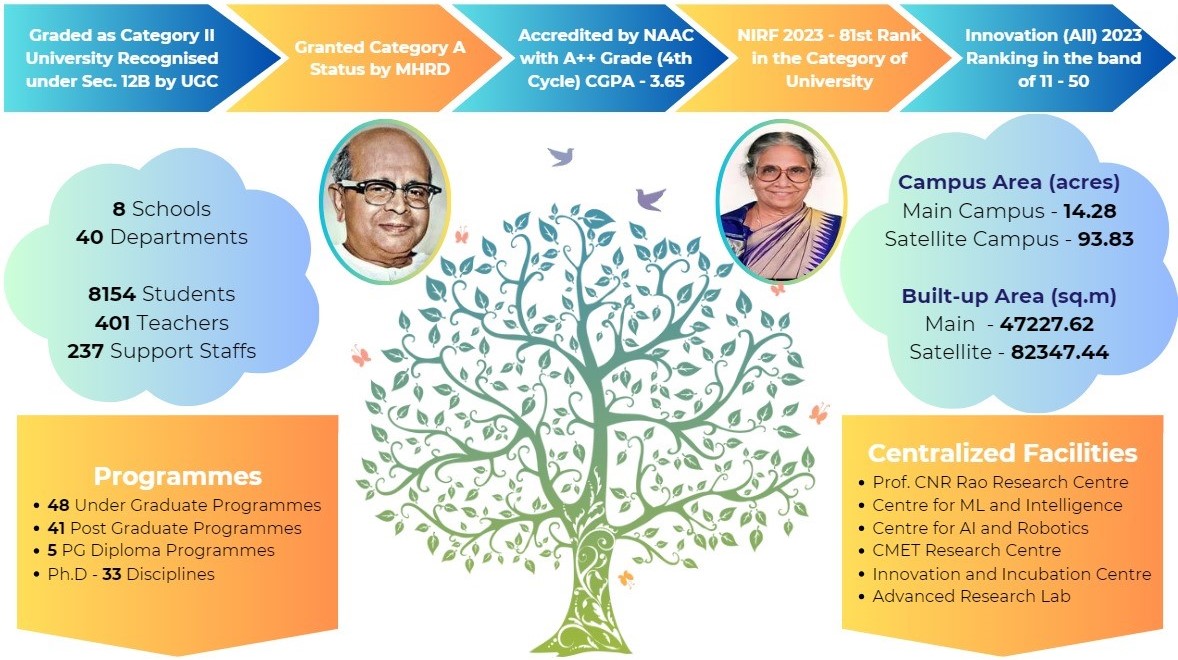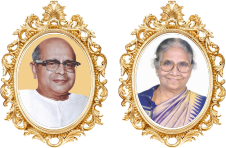
Sri Avinashilingam Home Science College for Women was established by the great patriot and educationist Dr. T.S. Avinashilingam under the auspices of the Avinashilingam Education Trust in 1957 with 45 students. The growth of the Institution has been carefully nurtured to its current heights by the world renowned educationist and nutritionist, former Chancellor of the University Dr. Rajammal P. Devadas. It is now the largest Institution in the country for imparting Home Science Education at all levels. It was one of the eight colleges on which autonomy was conferred by the University of Madras in June 1978 and the first of the women's colleges to get this distinction. Autonomy gave the College scope for academic freedom for innovations in teaching and research.
The Government of India declared Sri Avinashilingam Home Science College for Women and Sri Avinashilingam Teachers College for Women as a Deemed-to-be-University under Section 3 of the UGC Act in June 1988. These Colleges have been renamed as Avinashilingam Institute for Home Science and Higher Education for Women and is marching towards the Thirtieth year as a Deemd-to-be-University.

The Institution follows the educational ideals of Sri Ramakrishna, Holy Mother Sri Saradamani Devi, Swami Vivekananda and Mahatma Gandhi and upholds a life of purity, discipline and service. A temple dedicated to Sri Ramakrishna commands the campus. Daily prayer is an integral part of campus life. All the students and staff are expected to participate in the common prayers.
The Institute functions under eight Schools, namely, Home Science, Physical Sciences & Computational Sciences, Biosciences, Arts & Social Sciences, Commerce & Management, Education, Allied & Healthcare sciences and Engineering. Each school functions under the headship of a Dean.

The pattern of education has been fully Semesterised. The academic year is divided into two semesters, each semester having a minimum of 90 teaching days. The semester pattern offers each student individual attention of the teacher and facilitates the student's all round development. It calls for active participation of the students in the learning process.
Regular attendance is an important feature of the semester pattern. In all Programmes, a student should have a minimum of 75 percent attendance for both theory and practicals to appear for the comprehensive semester Examinations. Examinations for the courses offered in a semester are conducted in the same semester to make learning more effective and to reduce the burden on the students.



